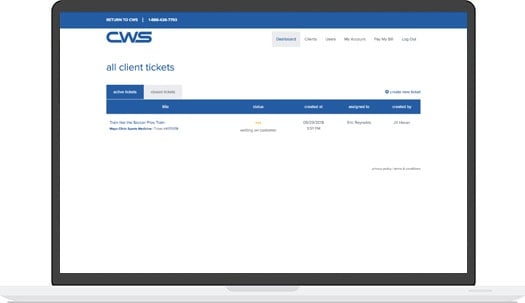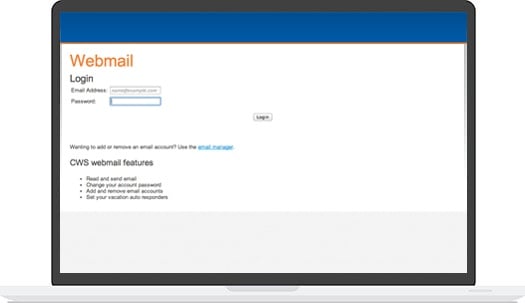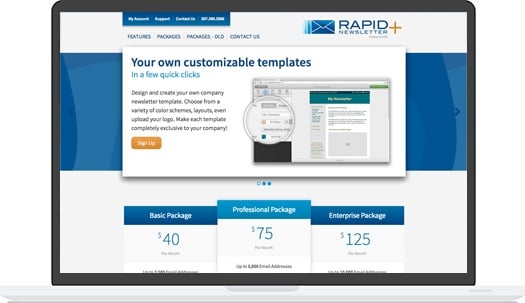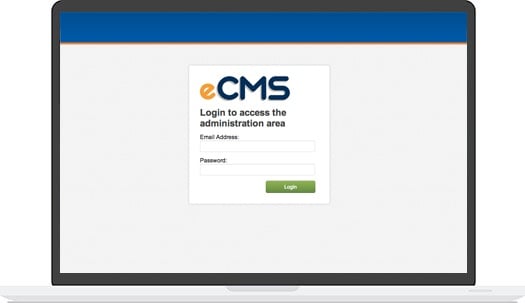Selling products online can be a fast and effective way to increase revenue. The timing is right because several trends have come together to make this an opportunity worth pursuing:
- More people are buying online than ever before
- Technology has advanced to make it easy to sell online
- Delivery services have improved, so your product is delivered quickly. (Amazon has one-hour delivery in some cities)
Download the 22 Website Hacks To Drive Traffic, Leads & Sales Free eBook
Reasons why you're not selling products online now
There are two main situations where a company that is not currently selling products online should consider doing so.
1. You sell products offline in a brick-and-mortar store
If you sell products offline but not online, you are missing a huge opportunity. According to the U.S. Department of Commerce, the percentage of ecommerce sales is steadily growing—at a very fast rate. A wise business will take advantage of this.

Brick-and-mortar stores have a big advantage because they already understand the retail process. Also, they already have inventory and other systems in place, which makes it relatively simple to expand to an online store.
2. You sell services online, but not products
Many businesses sell services online (CWS, for example), but do not sell products. Think of a product line that makes sense, and add a new revenue stream to your business. At CWS, we might consider selling products that were both useful to our target market and had a fit with our services, such as high-quality hard drives.
Also, consider ways that you can stand apart from everyone else. For example, instead of just selling hard drives, we could sell hard drives that have encryption and other cybersecurity measures installed. We could also sell hard drives that come preinstalled with files that our customers would value, such as stock images for their blog articles or ebooks they can use for lead magnets.
Getting started
The first two questions to ask yourself are:
- How many items do I plan to sell?
- Do I want an out-of-the-box solution or one that is custom designed?
Three out-of-the-box solutions
The simplest and least expensive solution is PayPal. PayPal provides buttons that you can add to your website and is a great solution for up to 10 items. One downside is that they push using their own payment system, and some people find it difficult to find the link to pay with their credit card.
 Selling around 10 to 20 items? Square is an excellent solution. It is easy for the customer to use, and it is easy to add to your website. They provide invoicing, a payment system, and an online store. One downside is that you have limited control over how your online store looks, so don't plan on a lot of customizing.
Selling around 10 to 20 items? Square is an excellent solution. It is easy for the customer to use, and it is easy to add to your website. They provide invoicing, a payment system, and an online store. One downside is that you have limited control over how your online store looks, so don't plan on a lot of customizing.
 If you plan to sell more than 20 items and want all of the advantages of a full ecommerce system, consider platforms such as OpenCart (free) and Shopify (monthly payment). With these solutions, you can customize how your online store looks along with so many other options that I won't even try to list them all. One downside is that these solutions can feel overwhelming, so consider hiring someone to help you.
If you plan to sell more than 20 items and want all of the advantages of a full ecommerce system, consider platforms such as OpenCart (free) and Shopify (monthly payment). With these solutions, you can customize how your online store looks along with so many other options that I won't even try to list them all. One downside is that these solutions can feel overwhelming, so consider hiring someone to help you.
Custom solution
If none of these existing solutions work for you, or if you foresee a complex or changing ecommerce situation, then hire an experienced company to custom develop a solution for you. Although this will cost more to develop and implement, you will have peace of mind knowing that someone has your back and will handle any problem that comes along. This also allows your team to focus on what they are best at - the business.
3 potential problems and how to avoid them
Problem 1: Inventory
One of the biggest problems newbies face is maintaining inventory. When you first set up your store, you're excited about the project, and you make sure every item is accounted for. After a while, however, you get busy with the rest of your business, and maintaining accurate inventory takes a back seat. The last thing you want is for someone to place an order for an item you no longer have in stock. Assign at least one person to maintain inventory and keep a strict schedule.
Problem 2: Images
Another problem is poor product images, such as those that are blurry, too small, or too dark. The product image is the first thing your prospective customers see, and it is a vital part of the buying process. Hire a professional photographer who is experienced at taking product photographs and understands both lighting and composition.

Problem 3: Marketing
The third problem is poor or nonexistent marketing. Too many companies spend the money to create a beautiful ecommerce store, but have no marketing plan to support it. No one will buy from you if they don't know about your store. Strongly consider hiring a marketing agency experienced in digital ad placement and conversion marketing to devise an effective campaign that will bring those customers to your ecommerce doorstep.
Measure, test, and optimize
Whatever platform you use, be sure you have Google Analytics installed and customized for your store. With Google Analytics, you can measure how well your store converts visitors to customers, make adjustments to improve conversion, and then measure again. Through this testing process, you can optimize your ecommerce store until it is running at peak performance.
Google Analytics has many features designed for ecommerce including:
- Tracking the effectiveness of your digital ad campaign
- Measuring how far your visitors progressed in the buying cycle
- Setting conversion goals based on onsite actions
A good marketing agency will not only help you set up Google Analytics, they will also help you set goals and understand the many analytics reports available. It is important to know which analytics are the most useful, and then learn how to apply those results to improve your store.
While it is not that difficult to understand the basics of selling products online, hiring an experienced partner can not only make the process even easier, it can make it more profitable. CWS has experience in all aspects of ecommerce, from installing simple buy buttons to full custom development of your online store. And with certifications in HubSpot (inbound marketing software) and Google Analytics, along with our years of experience with digital and traditional advertising, we can help ensure your success as you increase your company’s revenue by selling products online.

.jpg?t=1533315998368) How-To Articles
How-To Articles Support Portal
Support Portal Webmail
Webmail Rapid Newsletter+
Rapid Newsletter+ eCMS
eCMS


 Our content team is made up of thought leaders, strategists, and content creators who have more than 70 years of combined experience. With a wide variety of backgrounds as entrepreneurs, marketing gurus, healthcare associates, as well as plenty of experience in other industries, we help grow businesses with our relevant, trusted, and helpful resources.
Our content team is made up of thought leaders, strategists, and content creators who have more than 70 years of combined experience. With a wide variety of backgrounds as entrepreneurs, marketing gurus, healthcare associates, as well as plenty of experience in other industries, we help grow businesses with our relevant, trusted, and helpful resources.
